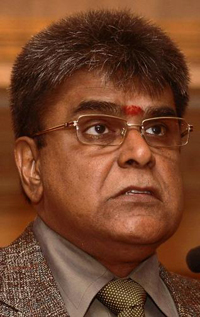
Exploring growth opportunities in Tirupur
Mr A. Sakthivel, President of the Tirupur Exporters Association (TEA), yesterday told the online edition of India’s national newspaper The Hindu, that production in the Tirupur knitwear cluster had dropped by 20% in the last six months due to continual rises in cotton yarn prices. Mr Sakthivel said that this had resulted in 25,000 job losses. Â “Since orders are booked many months in advance, the abnormal increase in yarn prices at short intervals has forced appa

19th November 2010
Knitting Industry
|
Tirupur
 Mr A. Sakthivel, President of the Tirupur Exporters Association (TEA), yesterday told the online edition of India’s national newspaper The Hindu, that production in the Tirupur knitwear cluster had dropped by 20% in the last six months due to continual rises in cotton yarn prices. Mr Sakthivel said that this had resulted in 25,000 job losses.
Mr A. Sakthivel, President of the Tirupur Exporters Association (TEA), yesterday told the online edition of India’s national newspaper The Hindu, that production in the Tirupur knitwear cluster had dropped by 20% in the last six months due to continual rises in cotton yarn prices. Mr Sakthivel said that this had resulted in 25,000 job losses.
“Since orders are booked many months in advance, the abnormal increase in yarn prices at short intervals has forced apparel manufacturers to trim production instead of executing the orders at huge losses,” Mr. Sakthivel said.
Mr. Sakthivel, who is also the president of the Federation of Indian Export Organisations (FIEO), explained the rationale behind the decision to observe a shutdown in textile clusters across the country today, 19 November. He attributed the steep rise in the yarn prices to its uncontrolled exports without looking into the domestic consumption needs. Of the 629 million kilos of yarn registered for exports this fiscal, 433 million are said to have been already been shipped, he told The Hindu.
“The Union Government should ban any further export of cotton yarn and stick to the caps fixed on cotton exports to help the industry tide over the present crisis,” Mr. Sakthivel said. He also cited the example of China which had imposed a blanket ban on cotton and yarn export to protect its domestic industry.
Mr. Sakthivel is also said to have criticised the spinning mills associations which had signed an agreement with TEA some months ago promising steady yarn prices for at least three months.

Business intelligence for the fibre, textiles and apparel industries: technologies, innovations, markets, investments, trade policy, sourcing, strategy...
Find out more